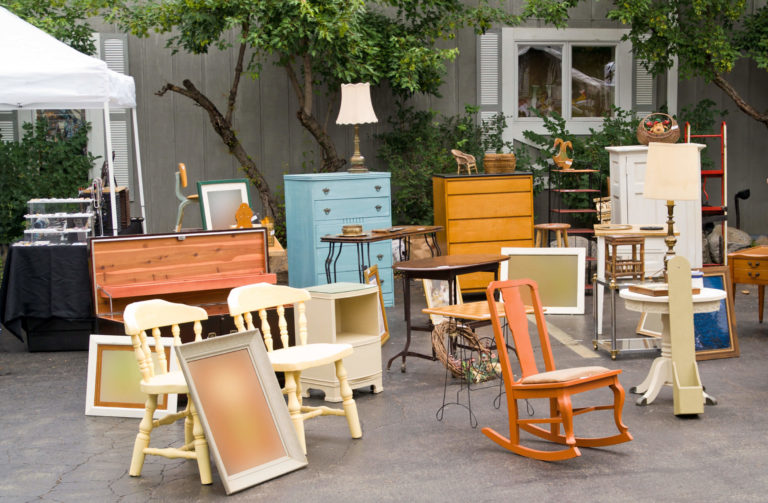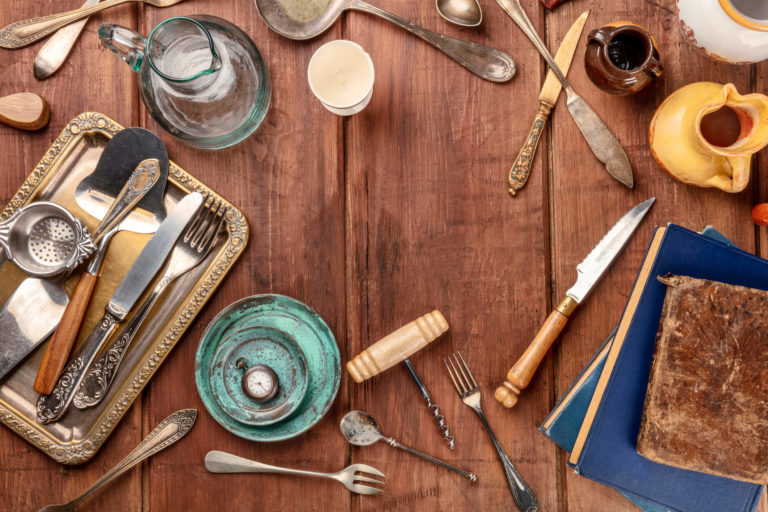If you feel up to tackling an estate sale task yourself, there are five important steps:
- Create an inventory
- Prepare your inventory for sale
- Advertise your estate sale
- Run your estate sale
- Clean up afterward
Estate sales require a lot of preparation. While the whole process takes about a month (if not longer), the sale itself is best done over one to three days. Just remember the more stuff you have to deal with, the longer it will take you to liquidate it all.
Two other things to keep in mind when you’re preparing for your estate sale: first, you’ll need a junk removal plan for whatever is left over after the sale ends, and second, you may need a few extra hands (friends or family members) to help you run the sale itself.
The easiest approach to creating an inventory list is to first identify what you don’t want to sell and remove it from the estate. Family keepsakes are usually at the top of this list. Shoppers often assume everything they see is for sale, and you won’t want to disappoint someone who is determined to buy an heirloom you want to keep.
Anything that doesn’t sell will have to be donated, thrown away, or otherwise disposed of. You can do some of this work ahead of time for items you know will end up in the dumpster.
You don’t want your estate sale filled with unsellable clutter that will distract from the more buyable items. But you probably don’t want to get rid of anything that could bring you a decent profit. If you think an item isn’t worth much or simply won’t sell, remove it beforehand so you can focus on more valuable inventory.
An appraiser’s reputation is everything. You’ll often find the best appraisers through a personal recommendation, but if you have to start from scratch, do thorough research—and be sure to look into each appraiser’s reviews, methodology, and what training they’ve had.
To get the best, most qualified appraiser (and to sell more property at the right price), ask these important questions:
- Are they trained in the uniform standards of professional appraisal practice (USPAP) or certified by any other professional organization?
- How much do they charge by the hour?
- Do they have expert knowledge of any particular property types, such as paintings, entertainment equipment, or furniture?
Your appraiser should have a set hourly rate for their services. They shouldn’t ask for a percentage fee of their valuation. (If they do, kindly show them the door.)
To get the best bang for your appraisal buck, be prepared to answer any and all questions the appraiser may have about your inventory items. Your combined knowledge could land you a better price at your estate sale or get you a few good bids at an auction.
Write. It. Down. If you don’t make a detailed list, you’re sure to forget something, whether it’s the price you set for the collection of porcelain cat statues or the year in which that fancy armoire was made. But if you do write everything down, you’ll be prepared when a buyer comes along trying to negotiate for the stainless steel kitchen equipment.



